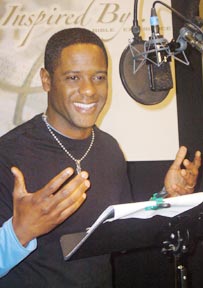Updated: 11/03/06
|
| BGCT executive board member Al Flores during a question and answer session following the presentation of the investigation into alleged misappropriation of BGCT church starting funds in the Rio Grande Valley. (Photos by Barbara Bedrick/BGCT) |
Evidence found of misuse of Valley funds
By Ken Camp
Managing Editor
DALLAS—A five-month investigation uncovered evidence Baptist General Convention of Texas church starting funds were misused between 1999 and 2005 in the Rio Grande Valley.
At a called meeting of the BGCT Executive Board Oct. 31, investigators reported they discovered up to 98 percent of the 258 church starts reported by three pastors in the Valley—Otto Arango, Aaron de la Torre and Armando Vera—no longer exist. And some never existed, except on paper. The BGCT gave more than $1.3 million in start-up funding and monthly financial support to those 258 churches.
Executive Director Charles Wade and his senior administrative staff, in consultation with convention attorneys, will decide whether the BGCT will pursue any legal action against individuals involved in the misuse of funds, Executive Board Chairman Bob Fowler of Houston said.
That option “should not be ruled out,” said BGCT President Michael Bell.
“I don’t think that is vindictive at all,” said Bell, pastor of Greater St. Stephen First Baptist Church in Fort Worth. “We should do due diligence on behalf of all our constituent churches and the members of those congregations. We need to be able to report to them we have done all we could do.”
Efforts were made to contact the pastors named in the report. Vera and de la Torre did not answer phone calls following the board meeting.
The Baptist Standard received an e-mail from Arango stating the investigators’ report contained 13 to 15 mistakes or contradictions. He did not specify their nature. A request for elaboration, as well as response to allegations, was not answered as of press time.
The investigation uncovered poor oversight, uneven management, failure to abide by internal guidelines and misplaced trust by some BGCT Executive Board church starting staff leaders—specifically naming Abe Zabaneh and David Guel.
However, investigators found no apparent collusion and no evidence of profiteering on the part of BGCT personnel.
Zabaneh resigned as director of the church starting center and Guel announced his immediate retirement as a regional church starting consultant Oct. 25—the day after investigators presented an executive summary of their preliminary findings to Executive Board and convention officers and senior administrative staff. Zabaneh declined comment.
In response to charges that he failed to abide by guidelines, Guel responded: “Because there was no additional staff available, we had to find a way to manage the large volume of review meetings. At my request, my supervisor assessed the situation and allowed flexibility, which in this case allowed an exception to the guidelines. To my knowledge, exceptions to guidelines were not commonplace. This was done because we felt it was the best way to facilitate serving our churches.”
| Investigators noted BGCT leaders failed to investigate thoroughly charges of impropriety, even though some staff knew about irregularities in the church-starting program in the Valley. |
Guel also questioned the investigators’ findings that up to 98 percent of the churches started by the Valley pastors on whom the investigation centered failed to survive.
“We could actually do our own inquiry and will most likely discover that a great number of persons were saved, baptized and congregationalized somewhere. I am convinced that we also can find more churches in existence than what is being claimed,” he said. “I have already heard that some (of the people) interviewed refused to provide information because of fear or trying to protect the privacy of individuals.”
The investigating attorneys said BGCT leaders failed to investigate thoroughly charges of impropriety, even though some staff knew about irregularities in the church-starting program in the Valley.
Even an FBI investigation in 2000-2001 regarding allegations of fraud failed to prompt a serious internal investigation, the report noted. Investigators said they determined the FBI terminated the probe because the BGCT—as the injured party—did not pursue the complaint.
 |
| In a photo from Standard article on church starting in 1999, about the time investigators think the funds scandal began, Aaron de la Torre, is shown with E.B. Brooks (left) and David Guel going over plans for a church building. |
E.B. Brooks, who retired last year as director of the BGCT missions, evangelism and ministry area, disputed that assertion.
“The report of the investigation is replete with prejudicial terminology and reaches some conclusions by innuendo,” Brooks said. “It implies that no significant effort was made by the BGCT to address the concerns expressed in the Rio Grande Valley, the opposite of which is true. Significant staff time, energy and financial commitment were made to deal with the situation.”
Brooks said he provided to investigators a list of 13 specific actions taken between 2001 and 2003 in response to concerns expressed in the Valley.
After he retired from the BGCT, Brooks became executive director of the Piper Institute for Church Planting. Arango is the institute’s founder and president. Both Guel and Zabaneh serve on the institute’s board of directors, according to its website, www.piperinstitute.com.
Investigators also pointed out their investigation was impeded by unreliable information from BGCT staff and delays in producing documents.
“It became clear during the investigation that some of the information provided by the BGCT was unreliable. Some of the documents, such as new-church monthly reports, were found to be fabricated,” the investigators wrote.
They added discrepancies between data provided by the accounting office and the church starting center—and errors in BGCT records about active and inactive churches—made discovery of reliable information difficult.
Investigators also noted Zabaneh provided incomplete data to investigators initially, and—in spite of repeated requests—did not provide the church starting center’s policies and guidelines until Oct. 7.
“By that time, the last interview for the investigation had already been conducted, making it impossible to question witnesses on the church starting procedures,” the investigators wrote.
Officers of the BGCT and its Executive Board enlisted Brownsville attorney Diane Dillard to independently investigate alleged mishandling of church-starting funds in the Valley, and the board endorsed the investigation at its May meeting.
Dillard enlisted the help of Michael Rodriguez, a Brownsville trial attorney and former federal prosector; Carlos Barrera, a certified public accountant and certified fraud examiner; and Gregorio Castillo, a Spanish-speaking investigator.
Key findings they presented to the BGCT Executive Board included:
–Some church starts in the Valley were fictitious “phantom churches” that existed only on paper.
Evidence investigators discovered:
• The BGCT gave $1.3 million to help three pastors start 258 churches.
• Up to 98 percent of those churches no longer exist.
• Some “phantom churches” existed only on paper.
• Two pastors split some start-up gifts 50/50.
• Some church starting checks were deposited into a personal bank account.
• Some covenant agreements contained a forged signature.
• Some monthly reports were fictitious.
• Some BGCT personnel relaxed guidelines for certain pastors.
• Multiple complaints failed to trigger serious early investigation.
• An FBI probe in 2000-2001 failed to prompt serious internal investigation.
• No documented proof pastors used funds for personal gain.
• No evidence any BGCT staff used funds for personal gain. |
During an interview with investigators, de la Torre acknowledged he submitted false—even fictitious—new-church covenants for acceptance by the BGCT and he falsified the signature of the pastors for new churches his congregation claimed to start.
As a part of the investigation, Castillo interviewed Emilio Azael de la Garza, who was identified on the new-church covenant for De Redentor Church on July 1, 2000, as the congregation’s pastor. He also was named as pastor on monthly reports filed with the BGCT for 10 months.
“While Mr. de la Garza said he recognized his signature (on the document), he also said that he had never been the pastor of this church and knew nothing about it,” investigators wrote in their report.
–While some house churches in the Valley developed into autonomous congregations, a large number of the home-based groups did not qualify as “churches” under the BGCT church starting center’s guidelines.
“The definition turns on the intent to become autonomous,” Rodriguez explained in his report to the board. The BGCT’s primary consideration for funding a new church is whether the congregation has the goal of ultimately becoming a church—not remaining a cell group, Bible study or satellite of an existing congregation, he said.
“All evidence gathered to date demonstrates that many of the new churches or house churches started in the Valley between 1999 and 2005 by Dr. Arango and his protégés did not fulfill all of the requirements set out for a church, including the critical requirement of intentionality or having the ultimate goal of becoming an autonomous church,” the investigators wrote in their report to the board.
Guel insisted he received assurances the house churches were more than cell groups or Bible studies.
“I consistently was assured by Aaron de la Torre that he was developing new house churches and not cells,” Guel said. “Brother Aaron was told by me repeatedly—and in front of others—that the convention did not fund cells.”
–Some pastors misused church start-up funds. Investigators did not find “substantiated proof” that funds were used for personal gain.
Investigators found BGCT start-up funds were comingled in the general account of a sponsoring church; some BGCT church start-up checks were deposited in a personal account; leftover BGCT start-up funds usually were not returned after a new church disbanded; and BGCT start-up funds for specific churches sometimes were used for other church starts, missions work of a sponsoring church or for the sponsoring church itself.
Specifically, investigators reported de la Torre acknowledged he and Arango split start-up funds from the BGCT 50/50. The BGCT issued checks to de la Torre’s church, Iglesia Bautista de Communidad in Hidalgo, designated for specific mission congregations it sponsored.
De la Torre told investigators he and Arango deposited these checks into a bank account of the Institute for Church Planting, which Arango directed. Arango then immediately gave de la Torre half of the money in cash.
Arango initially denied the 50/50 split, but after repeated questioning by investigators, he finally acknowledged the practice. He reported the funds he kept were used to reprint copies of training materials he developed. Those training volumes were used in Latin American church starting efforts, he said. Over several years, the BGCT additionally paid at least $170,000 to republish the training books.
Dillard noted de la Torre and his wife expressed remorse about their involvement, saying they “want to repent” and “want to pay restitution.”
Investigators examined questions raised by pastors in the Valley about Arango’s extravagant lifestyle, seeking to determine if he profited illicitly from church starting efforts.
| Arango lives in an exclusive neighborhood and drives a Jaguar. Until recently, his wife drove a Range Rover. Arango told the investigators “that he had made a lot of money promoting his vision of planting churches.” |
Arango lives in an exclusive neighborhood and drives a Jaguar. Until recently, his wife drove a Range Rover; she now drives a Suburban. Arango told investigators the vehicles are leased, he “got a good deal” for the lot on which his home was built, and a member of his church had been contractor for his home.
“His ultimate response was that other Valley pastors were and are jealous of his success—financial, professional and personal,” the investigators wrote in their report. In his interview, Arango told the investigators “that he had made a lot of money promoting his vision of planting churches,” the report stated.
In fact, Arango disclosed the BGCT had paid him at least $500,000 in honorarium and reimbursement expenses for consulting between 1997 and 2003, investigators reported.
In addition to his $64,000 salary as pastor of Iglesia Bautista Getsemani in McAllen, Arango said he also received $4,400 per month from the BGCT and an additional $9,100 in consulting fees from four Baptist associations with whom he contracted his services—Del Rio-Uvalde (identified in the report as Eagle Pass Association), Tri-River Area, Dallas and Cooke (identified as Gainesville).
He did not provide an estimate of payments received from contracts with Union, Johnson, Gulf Coast and Coastal Bend associations. However, he told investigators he received $14,000 per month from associations—an amount that may have included the $9,100.
But investigators noted in their report they lacked the time to verify Arango’s claims, and some associational leaders disputed Arango’s assertions. (See related story.)
Brooks offers a different perspective on the funds received.
“The $600,000 to $700,000 funded to consulting work, travel and reproduction of textbooks in Dr. Arango’s work is not funding to new churches, and it shouldn’t be considered a Rio Grande Valley ministry,” he said.
“Dr. Arango worked all over Texas and Mexico. The BGCT Mexico Initiative began during these years. This leaves approximately $600,000 to $700,000 for salaries of at least two ministers of missions and funding to new churches. This is about $86,000 to $100,000 per year for the experimental project. This, from a church starting budget of between $4.5 million to $5 million per year, is not an excessive amount to spend on such a project.”
–New church development guidelines were not followed in some instances, and the guidelines were relaxed for certain pastors.
Investigators said Guel acknowledged he did not always follow church starting guidelines because there were so many applications, he could not get his work done. Guel said Brooks authorized “a relaxation of the guidelines” for a few pastors in the Valley, the investigators reported.
Zabaneh also said Brooks made an exception to guidelines to allow Guel to conduct church growth review meetings without all four members of the strategic planning team—the sponsoring church pastor, the new church pastor, an associational director of missions and a BGCT consultant—being present, the investigators said.
“Dr. Zabaneh stated that when he first became the leader of the church starting center, he believed in the new vision for starting churches in the Valley and that Dr. Brooks strongly believed in the work as well,” the investigators wrote.
“For this reason, he allowed some sponsor pastors of new church starts to circumvent the local association and guidelines.”
Brooks responded by saying the church starting effort in the Rio Grande Valley was “an experimental project” undertaken in direct response to the burgeoning Hispanic population in Texas. The project’s rapid growth overwhelmed financial and staff resources, he said.
“It was the responsibility and prerogative of my office to make exceptions to guidelines,” he said. “That assignment was made by the State Missions Commission.”
–Investigators found “no evidence that anyone at the BGCT received money for personal gain” in connection with the church start-up program in the Valley. They also found no evidence any BGCT staff knew about the 50/50 split agreement between Arango and de la Torre, nor did any BGCT staff know about “phantom churches.”
Investigators pointed to evidence some BGCT Executive Board staff knew about examples of irregularities in the church starting program in the Valley, but they found no evidence the convention staff conducted a thorough investigation into allegations.
“The BGCT should have recognized at least some of the red flags,” the investigators concluded. “However, no evidence of a thorough investigation of these matters was provided to the investigators. The lack of written investigation reports, summaries or memoranda in the BGCT files suggests that the allegations were not seen as credible.
“When asked, the BGCT witnesses had no logical explanation why there was not a thorough BGCT investigation into the allegations.”
News of religion, faith, missions, Bible study and Christian ministry among Texas Baptist churches, in the BGCT, the Southern Baptist Convention ( SBC ) and around the world.










